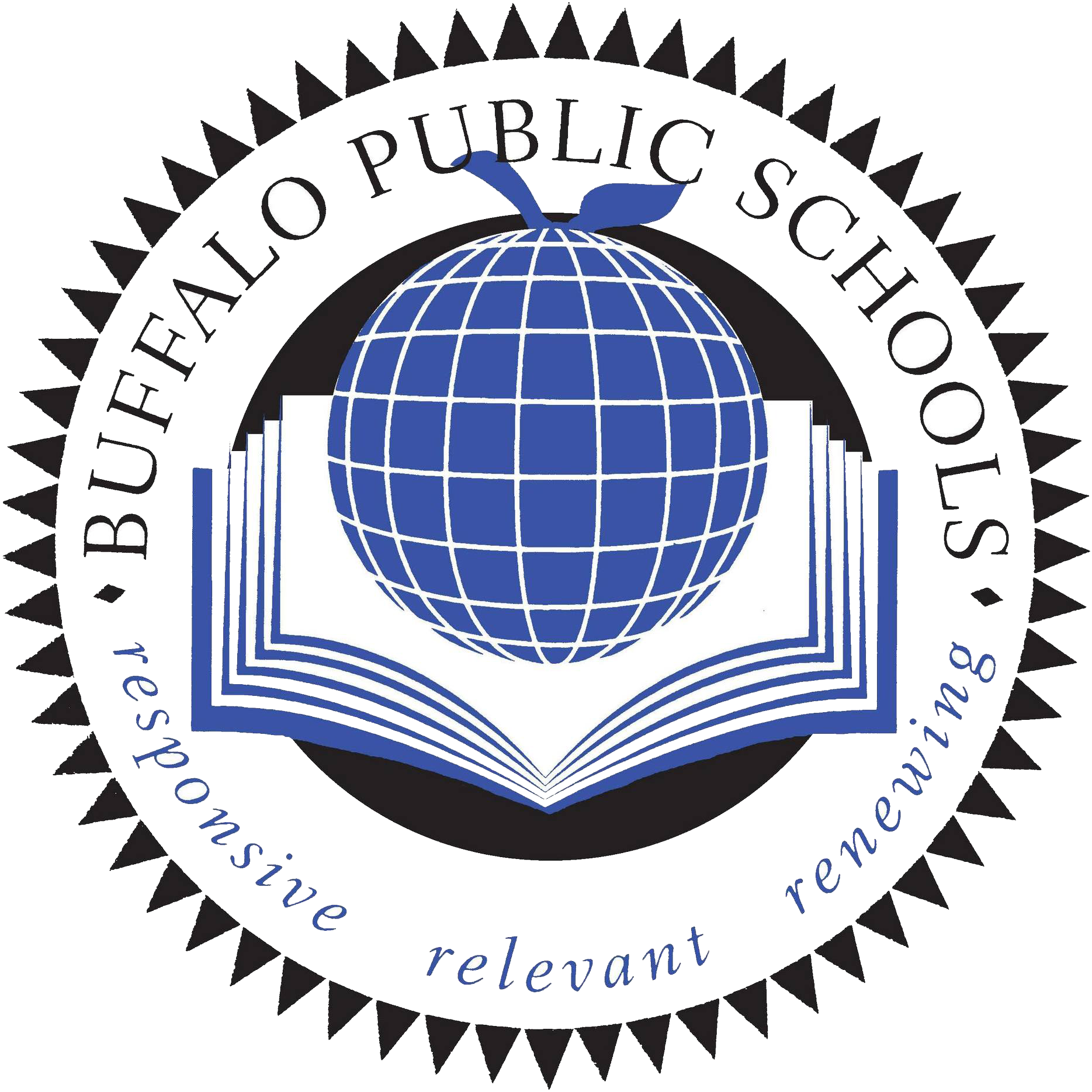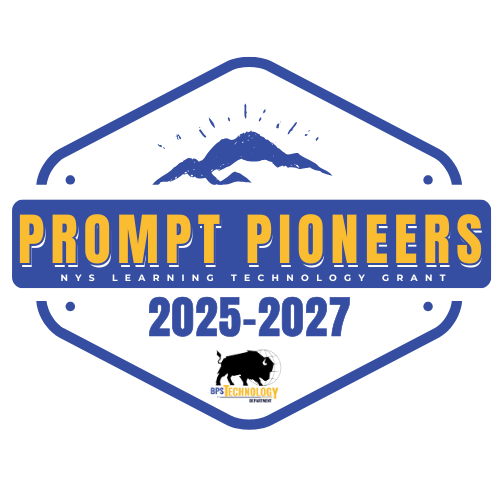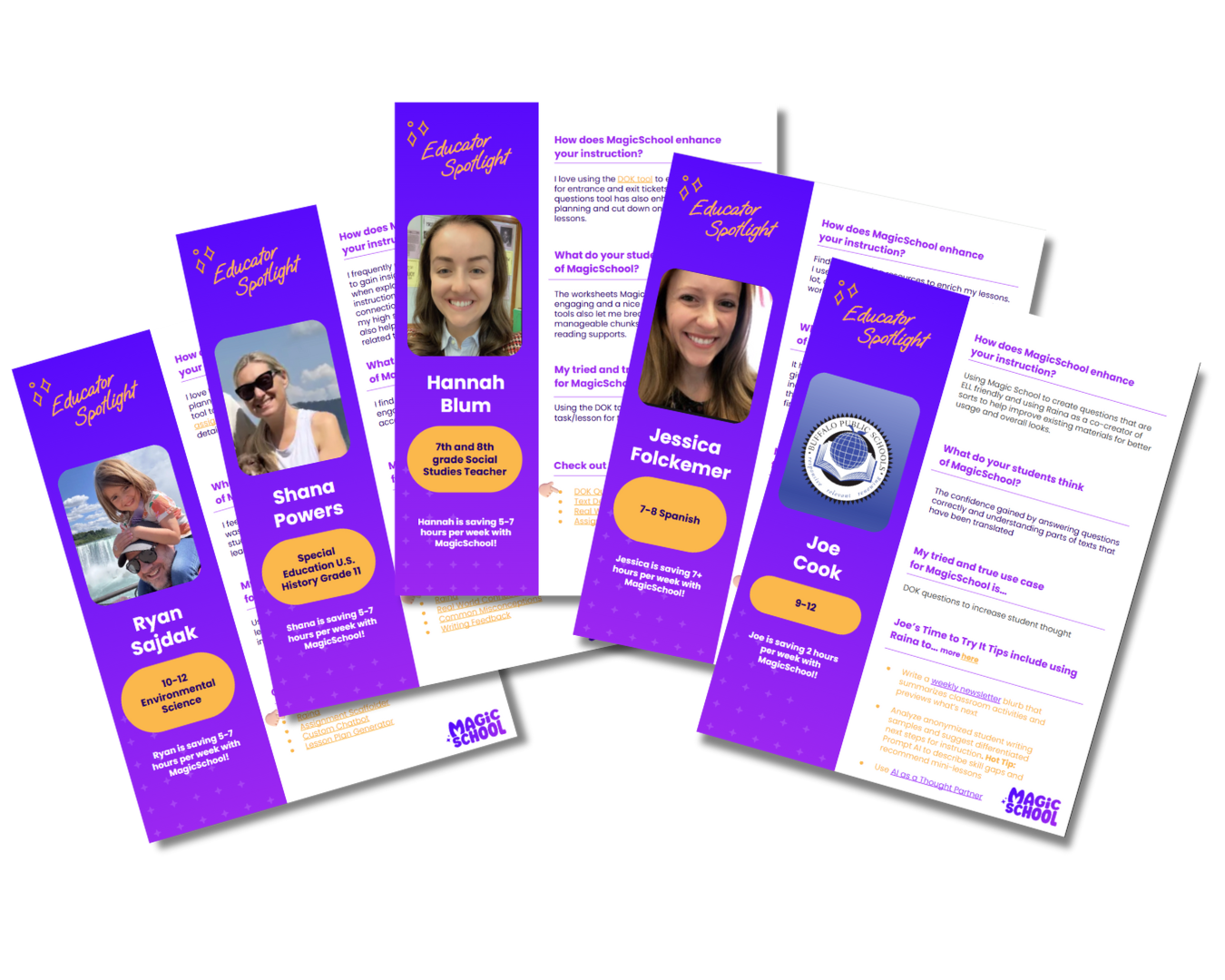Artificial Intelligence (AI) ✨ | LTG
Prompt Pioneers: Guiding Teachers to Leverage Generative Tools Through Coaching
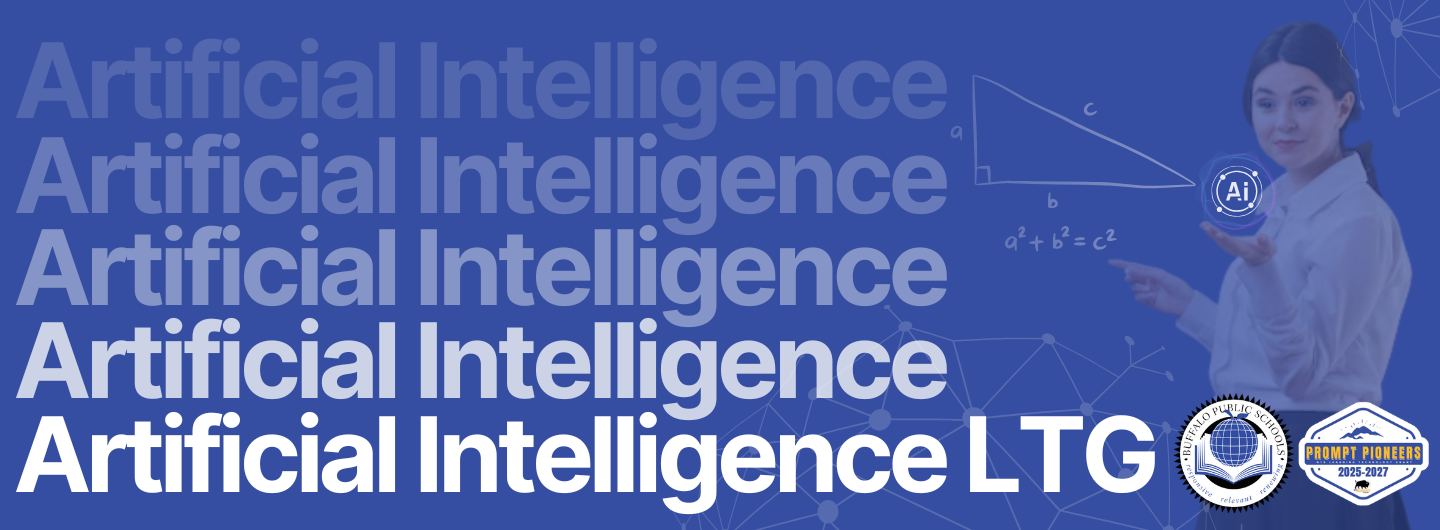
As artificial intelligence tools become more advanced and widely available, it’s essential for students, educators, and families to understand the appropriate and inappropriate uses of these technologies in academic settings. These guidelines outline what AI is, highlight academic integrity concerns, and address key safety, privacy, and learning challenges associated with its use.
What is Artificial Intelligence (AI)?
Artificial intelligence, or AI, is the technology that enables computer systems to simulate human intelligence and problem-solving tasks. It’s used to perform tasks that usually require human thought, like understanding language, recognizing patterns, or making decisions. Examples of AI in everyday life include Google Translate, Grammarly, Netflix viewing recommendations, and facial recognition.
Generative AI is a subset of AI that can learn patterns and relationships and use that information to create new content, such as text, images, music, audio, and videos. This field of AI has grown rapidly over the past few years and continues to evolve. ChatGPT, Co-Pilot, and Gemini are examples of generative AI tools.
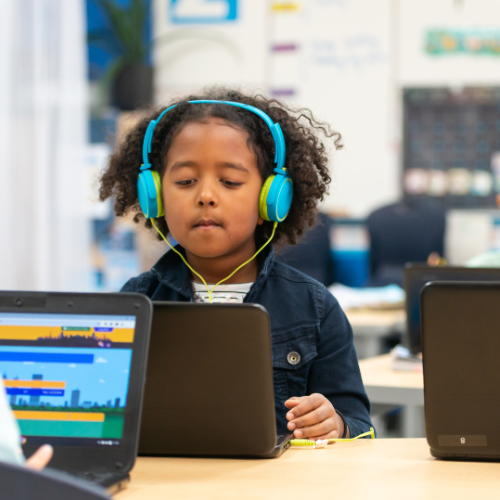

Why Incorporate AI in the Classroom?
Incorporating age-appropriate artificial intelligence (AI) in the classroom offers benefits for both students and educators.
General AI Usage Guidelines for All Buffalo Public Schools Users
These guidelines apply to all Buffalo Public Schools students, staff, administrators, contractors, and volunteers. They outline clear expectations to ensure AI is used responsibly, ethically, and in ways that support learning and operational goals.
1. Critical Evaluation
Always assume AI outputs may contain errors, inaccuracies, biases, or misinformation (some people call these “hallucinations”).
Critically review and verify AI-generated content using trusted sources before accepting, sharing, or acting upon it.
2. Human Judgment & Responsibility
Treat AI as a tool to support human work and decision-making — not a substitute for your own professional or personal judgment.
Never rely on AI alone for decisions that directly impact individuals, such as student grades, disciplinary actions, or personnel matters.
3. Privacy & Data Security
Never input confidential, sensitive, or personally identifiable information into any AI tool unless the tool is specifically vetted, approved by the district, and protected by a data privacy agreement that meets NYS and federal requirements.
Understand how AI vendors handle data and ensure compliance with all district privacy policies.
4. Ethical & Responsible Use
Use AI in ways that are fair, inclusive, and free from bias or discrimination. Be mindful that AI can reflect or amplify social and cultural biases.
Do not use AI to create or spread content that is discriminatory, harassing, hateful, insulting, false, defamatory, sexually explicit, obscene, or otherwise inappropriate.
Do not use AI for bullying, harassment, or to manipulate media for harmful purposes.
Respect intellectual property rights when using or sharing AI-generated or source content
5. Transparency & Citation
Uphold Academic and Professional Integrity by ensuring all work reflects honest effort and appropriate use of AI tools.
Be transparent about your use of AI tools in your work, especially when outputs are shared, published, or evaluated.
Follow any required citation guidelines to properly attribute AI-generated content and explain how it was used.
6. Purposeful & Approved Use
Use AI tools to support learning, productivity, and creativity — not as a shortcut to avoid meaningful work.
Only use AI tools that have been vetted and approved by Buffalo Public Schools. Be aware that even approved tools may have limitations or age restrictions
7. Support & Continuous Learning
If you are unsure how or when to use AI appropriately, ask your teacher, supervisor, or designated district support contact for guidance.
Engage in ongoing learning to stay informed about AI capabilities, limitations, ethical considerations, and best practices.
*These guidelines help ensure AI is used safely, ethically, and in ways that align with our district’s mission to support all learners and staff.

Training & Coaching
AI Integration & Instructional Coaching Kickoff
Buffalo Public Schools is launching a new initiative to explore how artificial intelligence can support teaching and learning in meaningful, practical ways. As part of the LTG grant, secondary teachers and instructional coaches will take part in Prompt Pioneers: AI Integration & Instructional Coaching for 7–12 Classrooms beginning Wednesday, September 25, 2025.
This professional learning experience will feature:
A live virtual visit with Magic School
A thought-provoking session with Dr. Jeremiah Okal-Frink
Ongoing learning opportunities focused on AI integration in the classroom
Instructional Technology Coaches will provide ongoing support as educators implement AI tools to enhance teaching and learning.
Virtual Training Sessions
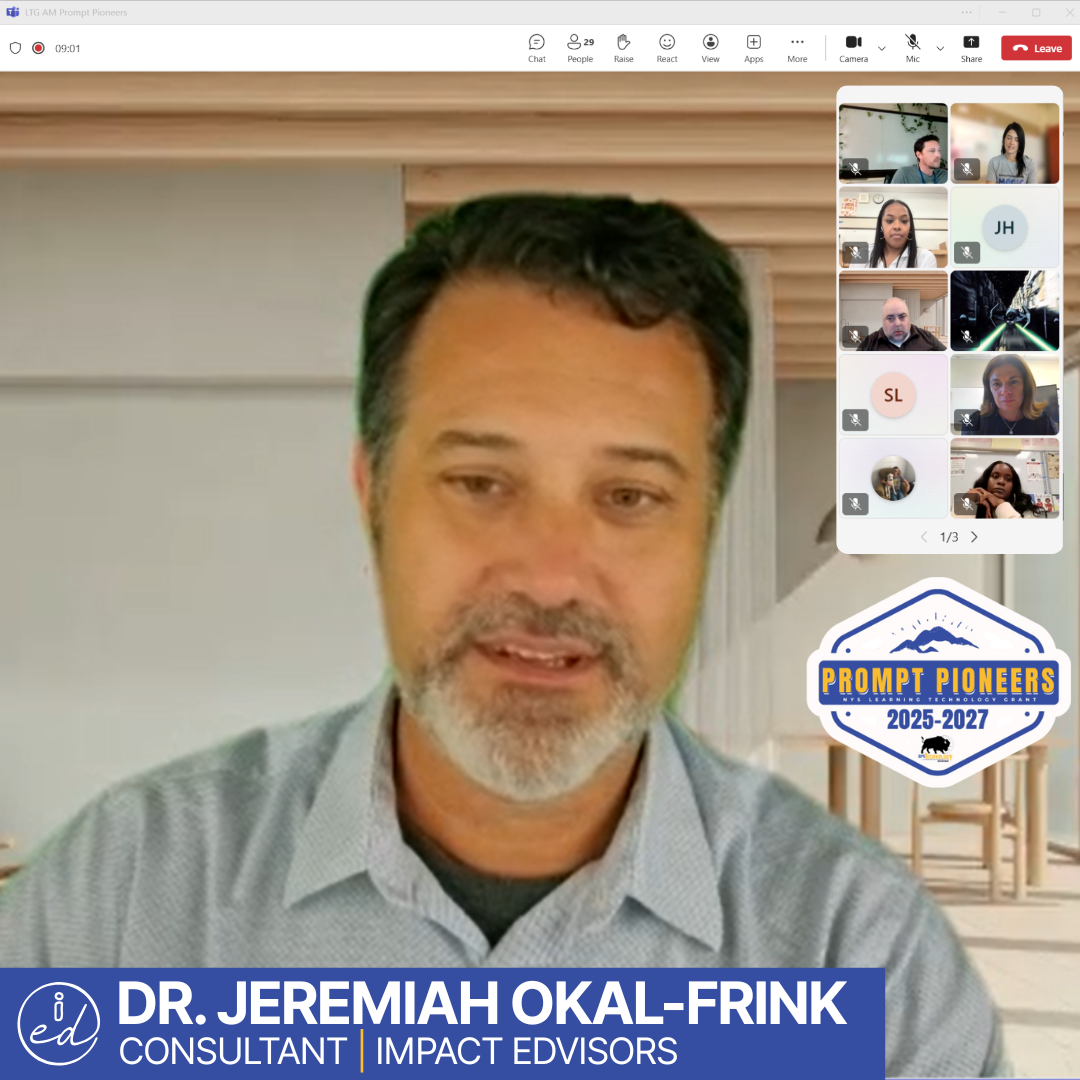
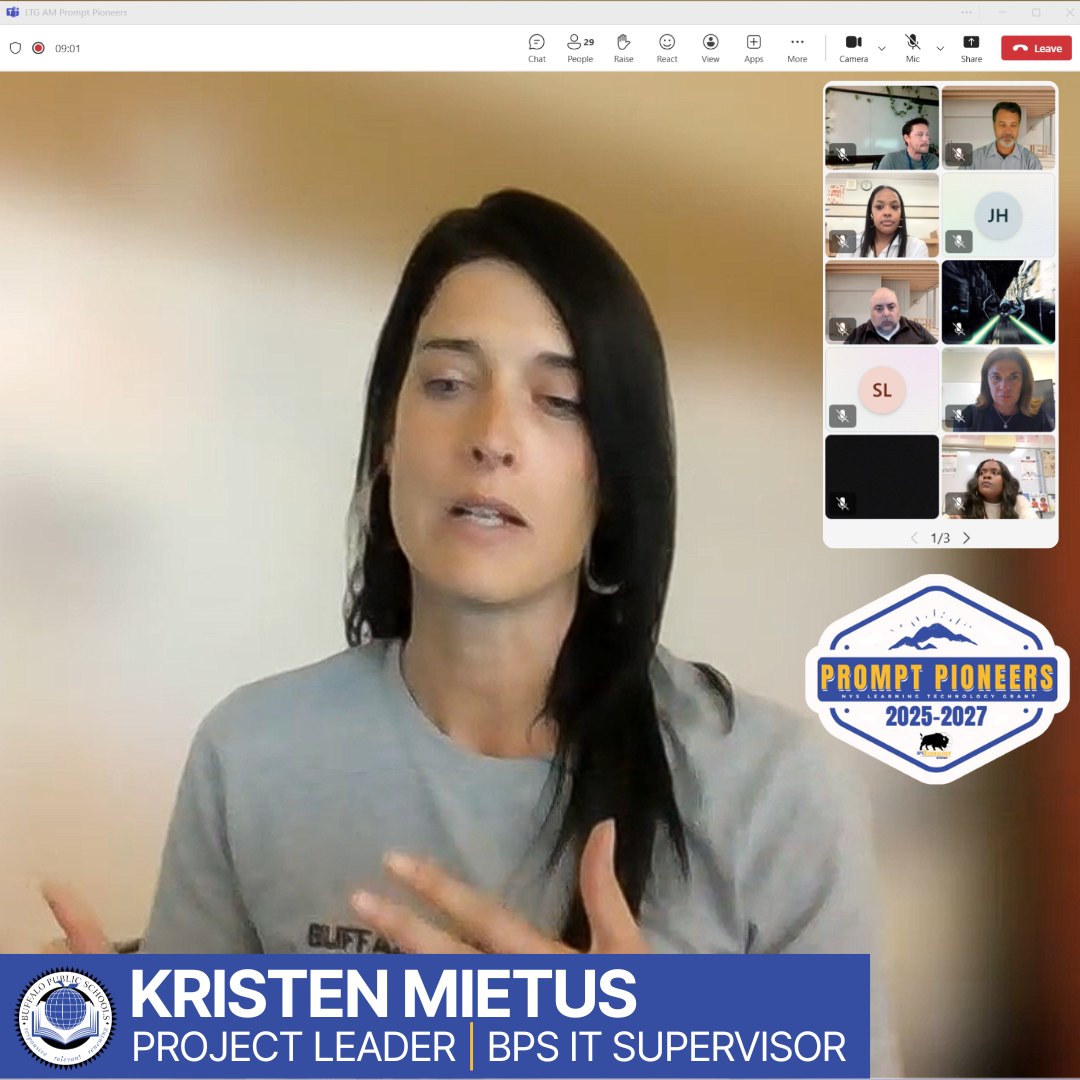
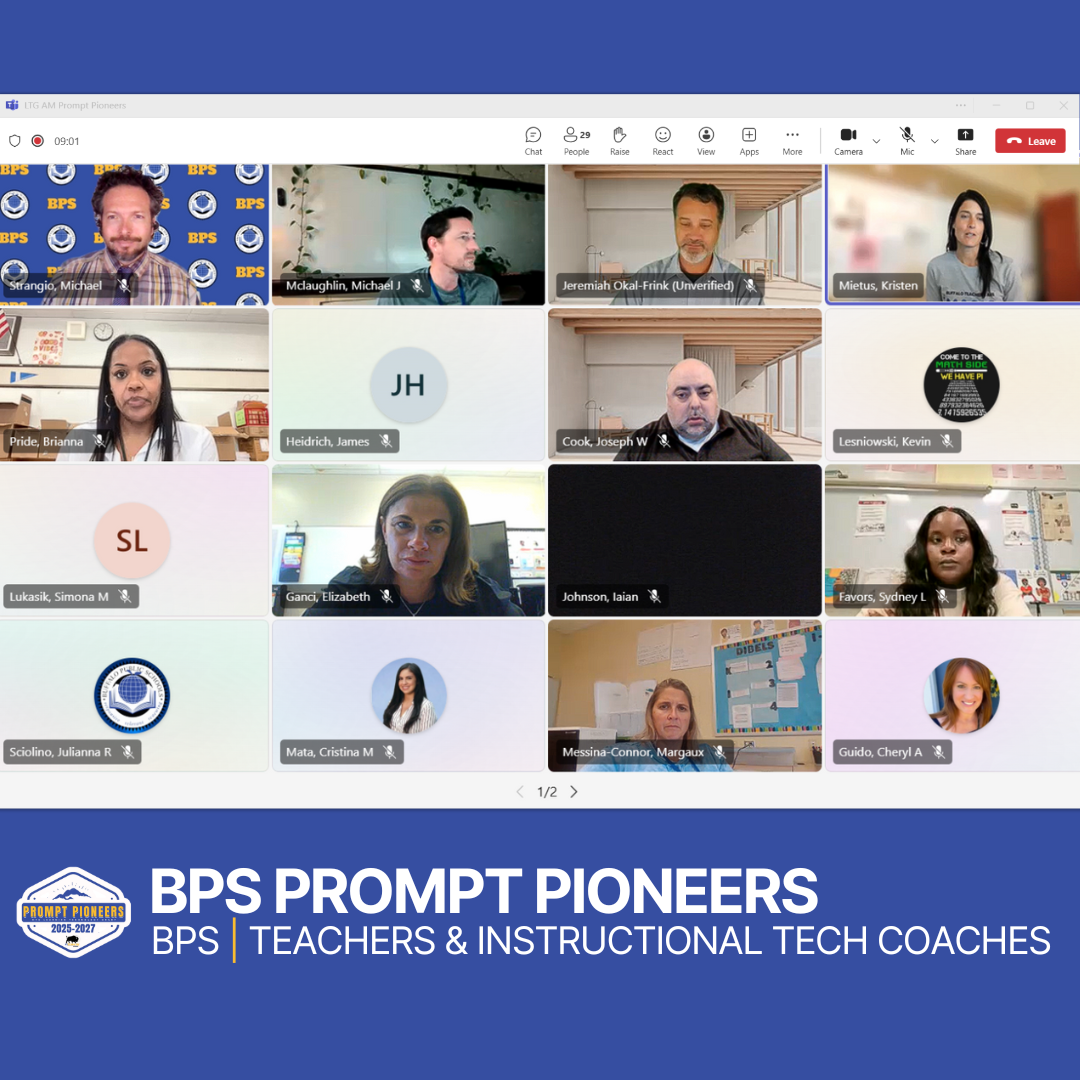
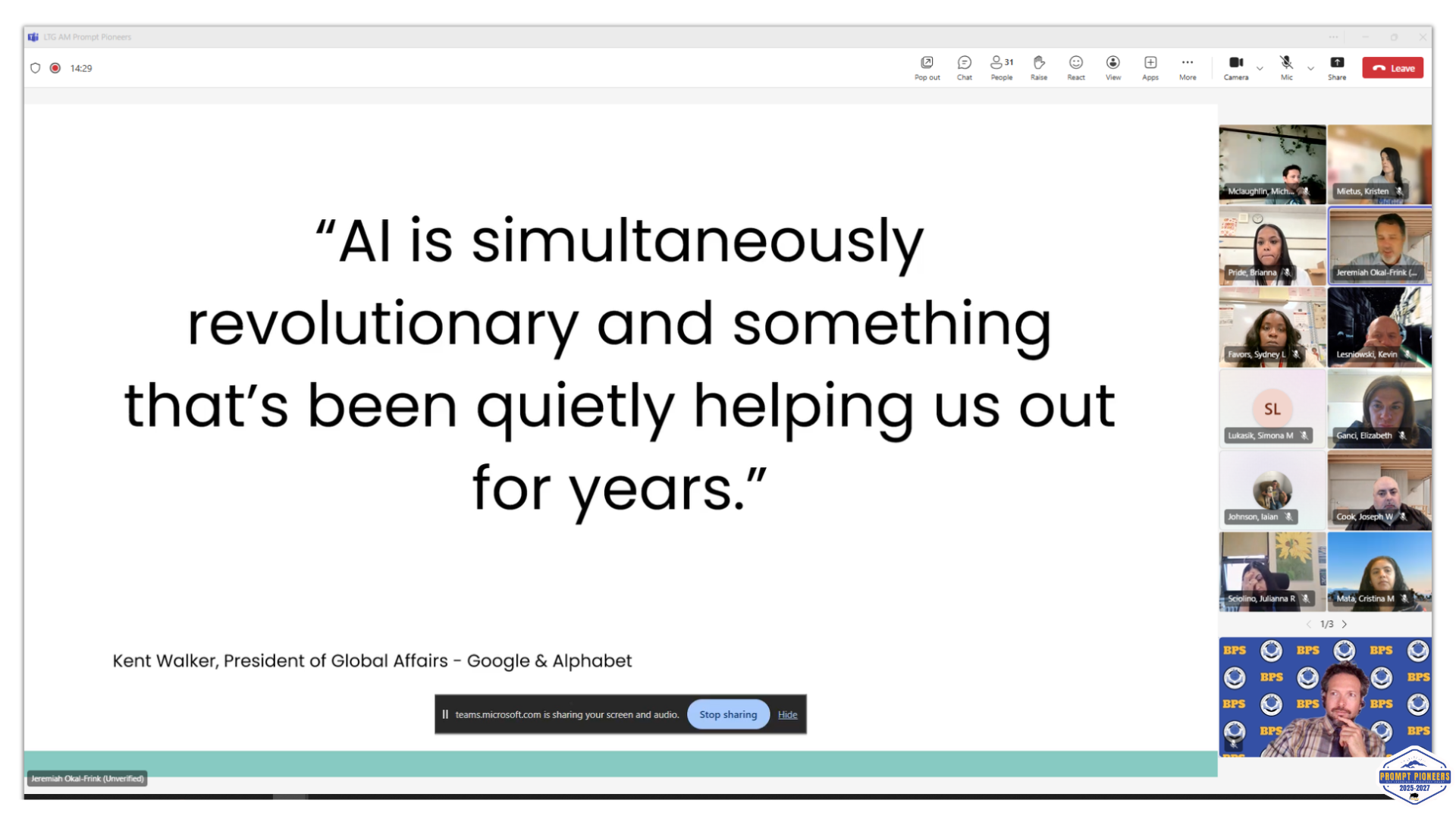
Our Prompt Pioneers

IT Supervisors
Kristen Mietus | Brianna Pride | Maria Muhlbauer |
|---|
Teachers
IT Coaches | Teachers |
|---|---|
Ryan Barrett | Iaian Johnson |
Greg Conley | James Heidrich |
Jasmine Davis | Jason Shaffer |
Mike Fabozzi | Collin Schreiner |
Kaitin Flitt | Hannah Blum |
Heidi Gruber | Margaux Messina-Connor |
Andrea Heath | Jessica Folckemer |
Kerri Higgins | Kevin Lesniowski |
Mia Caccamise | Martha Zimmerman |
Carmen Robles | Arianna Dugan |
Gabriel Russell | Simona Lock |
Cara Shea | Sydney Favors |
Julia Schlegel | James Bartram |
Amanda Spears | Rayna Panek |
Julia Tomaka | Jonna Wopperer |
Amy Burdette | Denise Bitar |
Cheryl Guido | Brent Minet |
Brandon Tiedeman | David Guarino |
Michael McLaughlin | Liz Ganci |
Grant Gillan | |
Wadith Montalvo | |
Brianna Tucker | |
Michelle Schroeder | |
Cristina Mata | |
Shana Powers | |
Ryan Sajdak | |
Mary Lou Hutton | |
Joseph Cook | |
Julie Deboth | |
Kaila Chapman |
Prompt Pioneer Day Sessions
Our Teacher Leaders participating in School Development with our Tech Coaches.
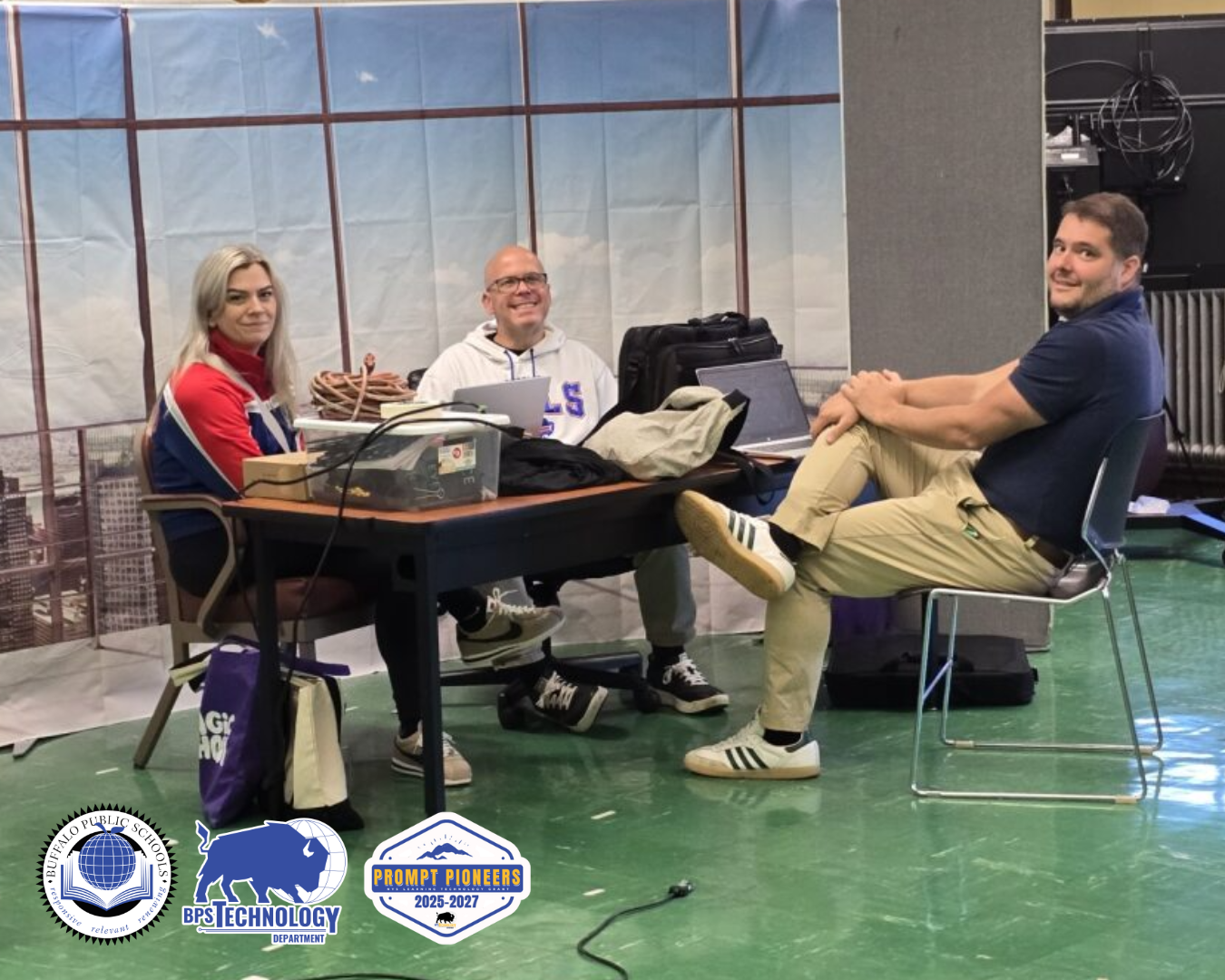
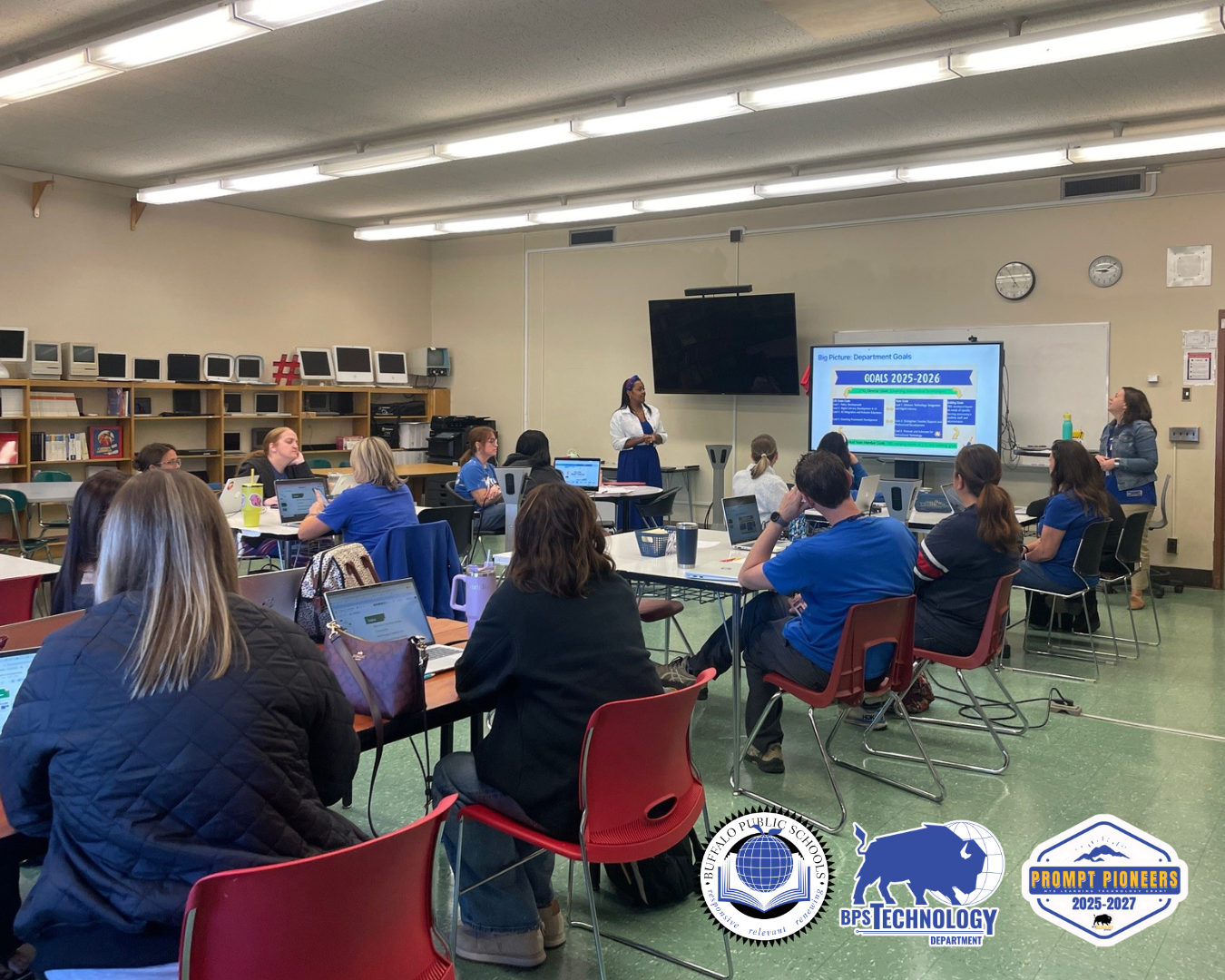
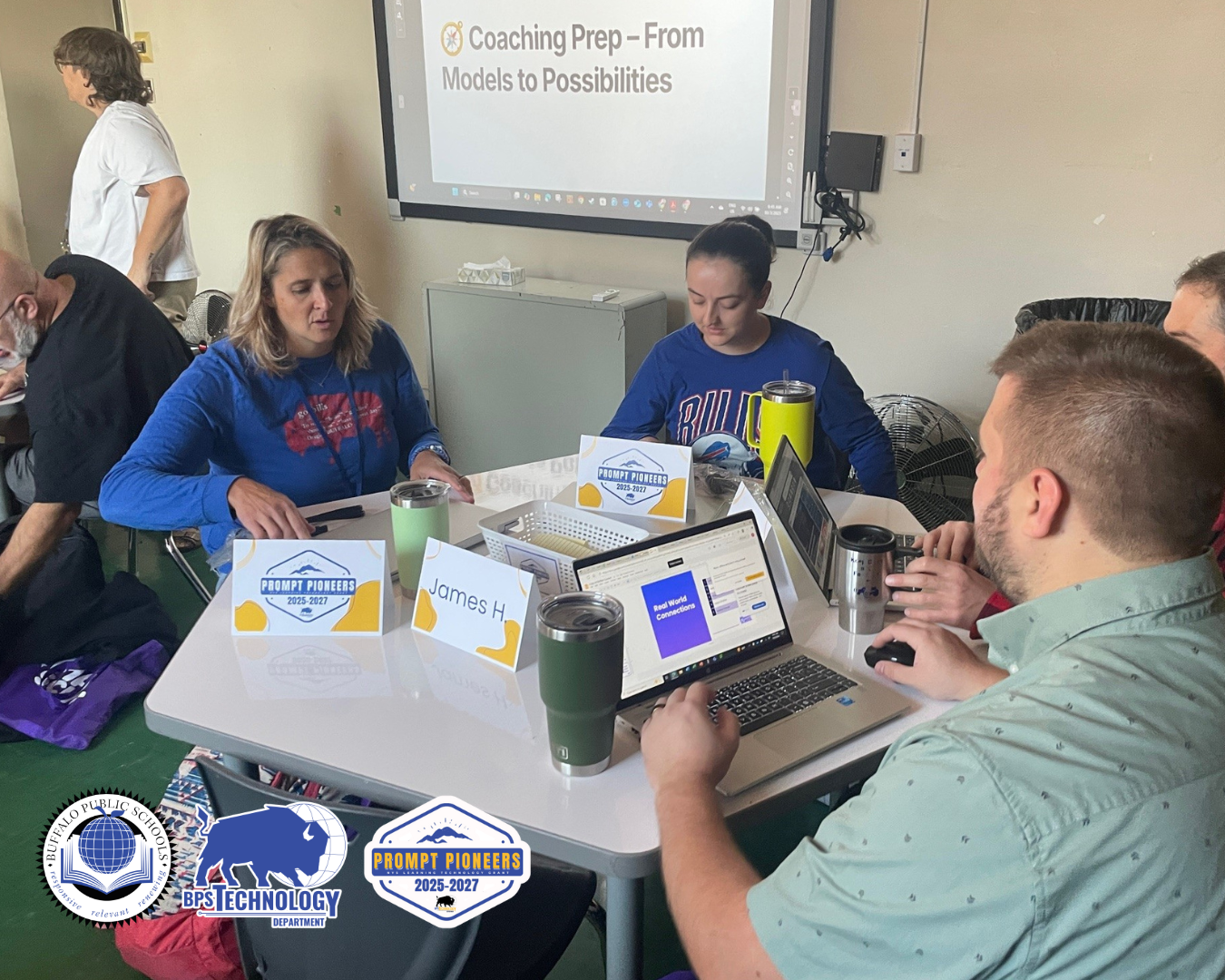
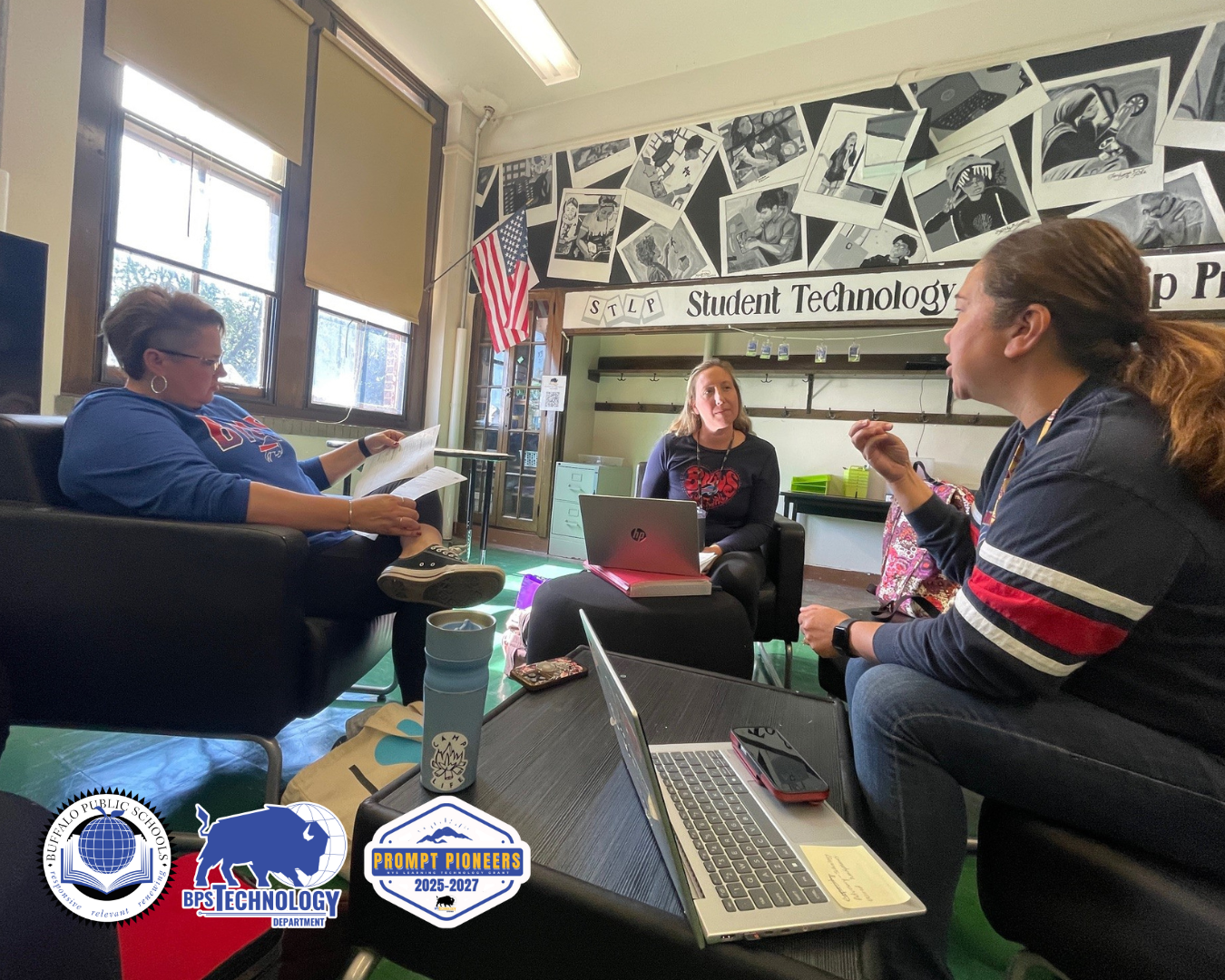
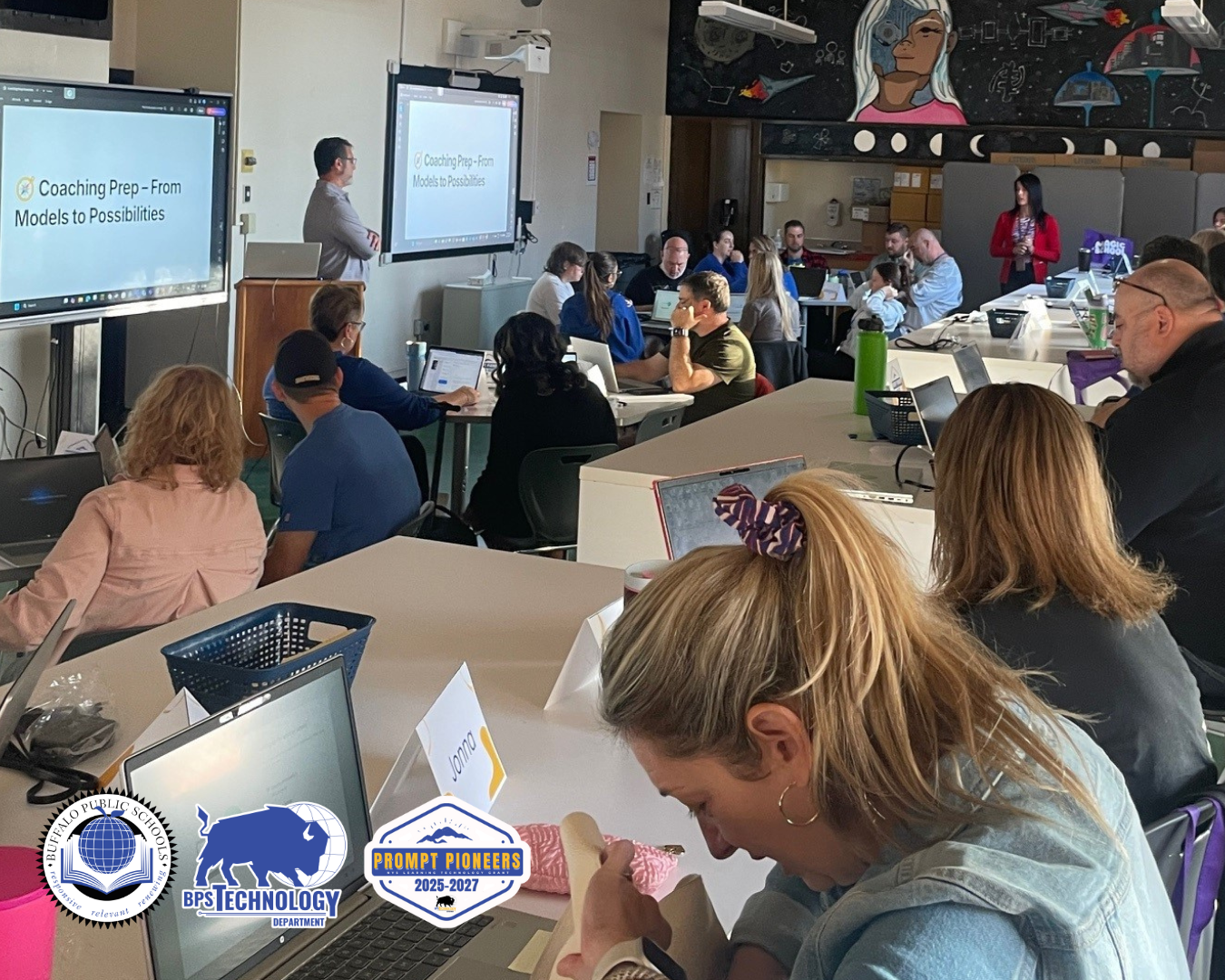
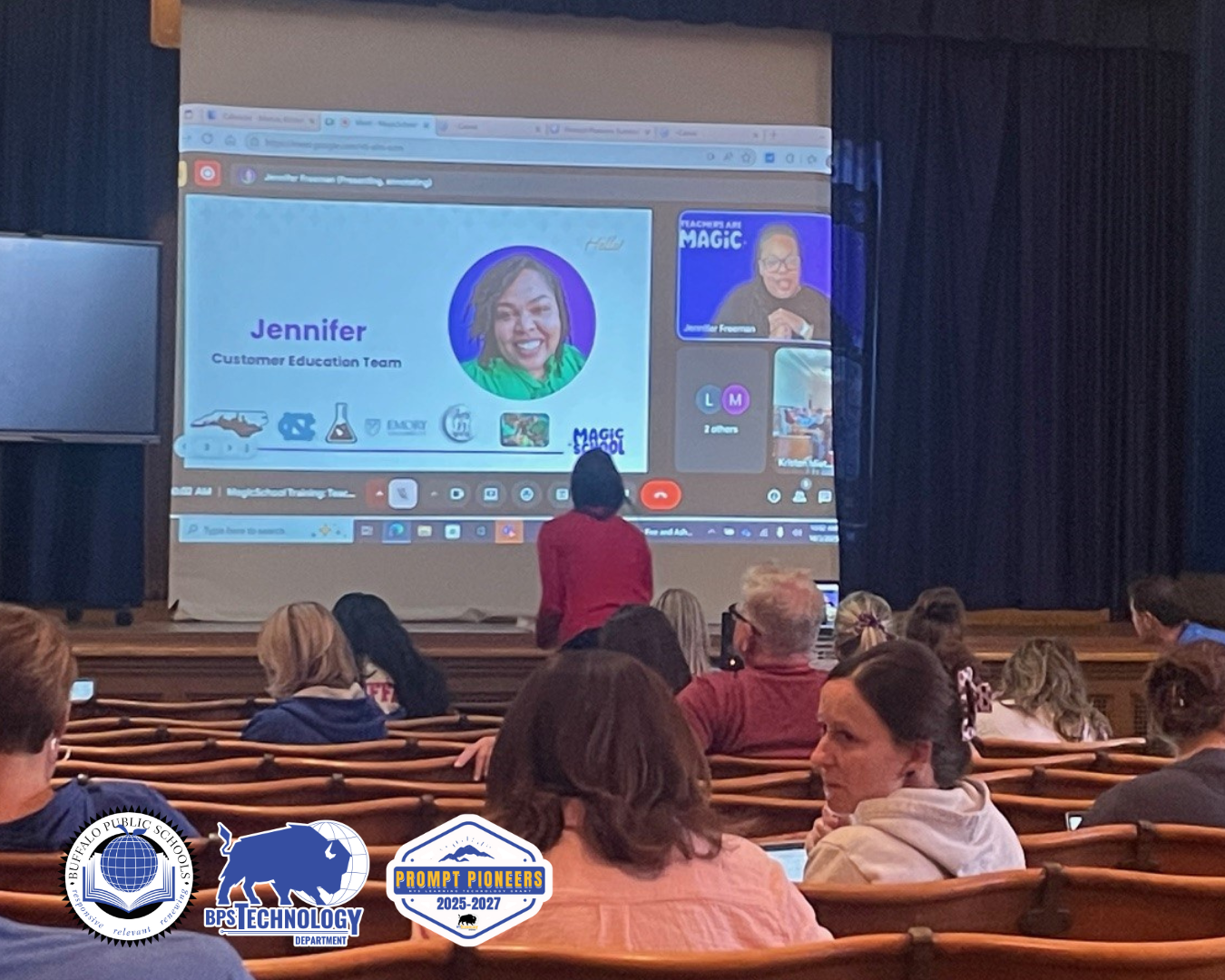
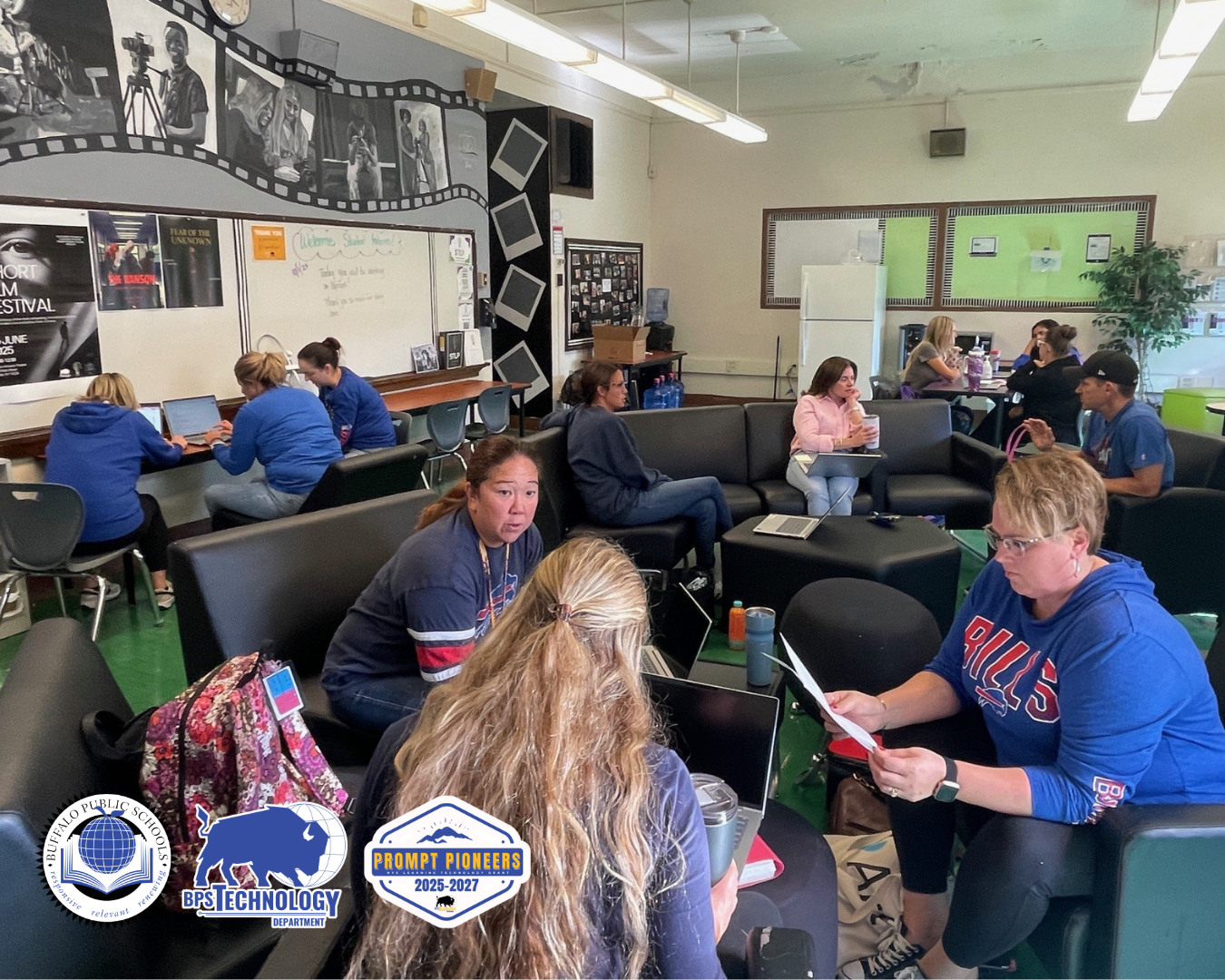
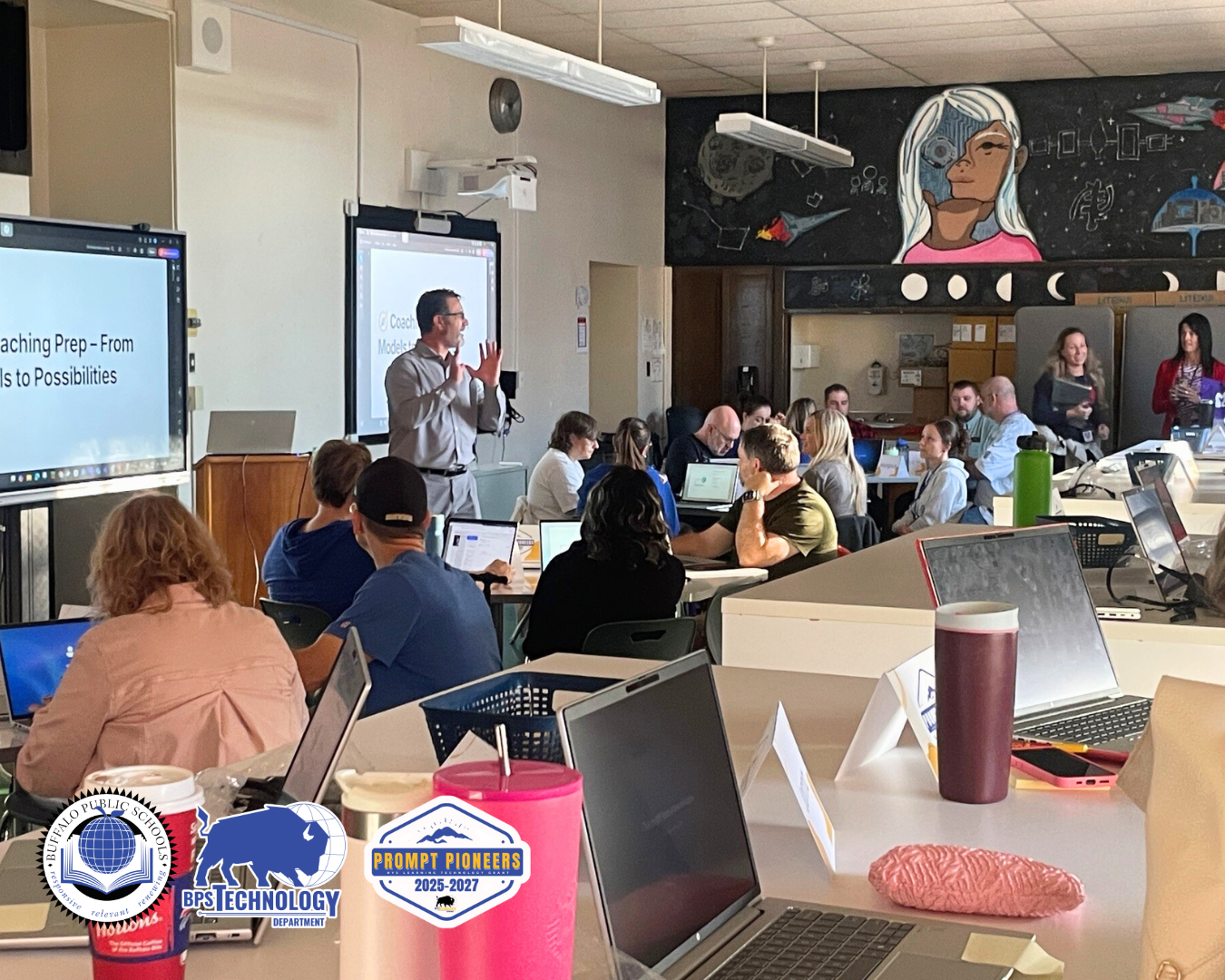
Leadership Conference
AI: From Policy to Practice | NYSCATE, NYC Public Schools, Buffalo Public Schools/
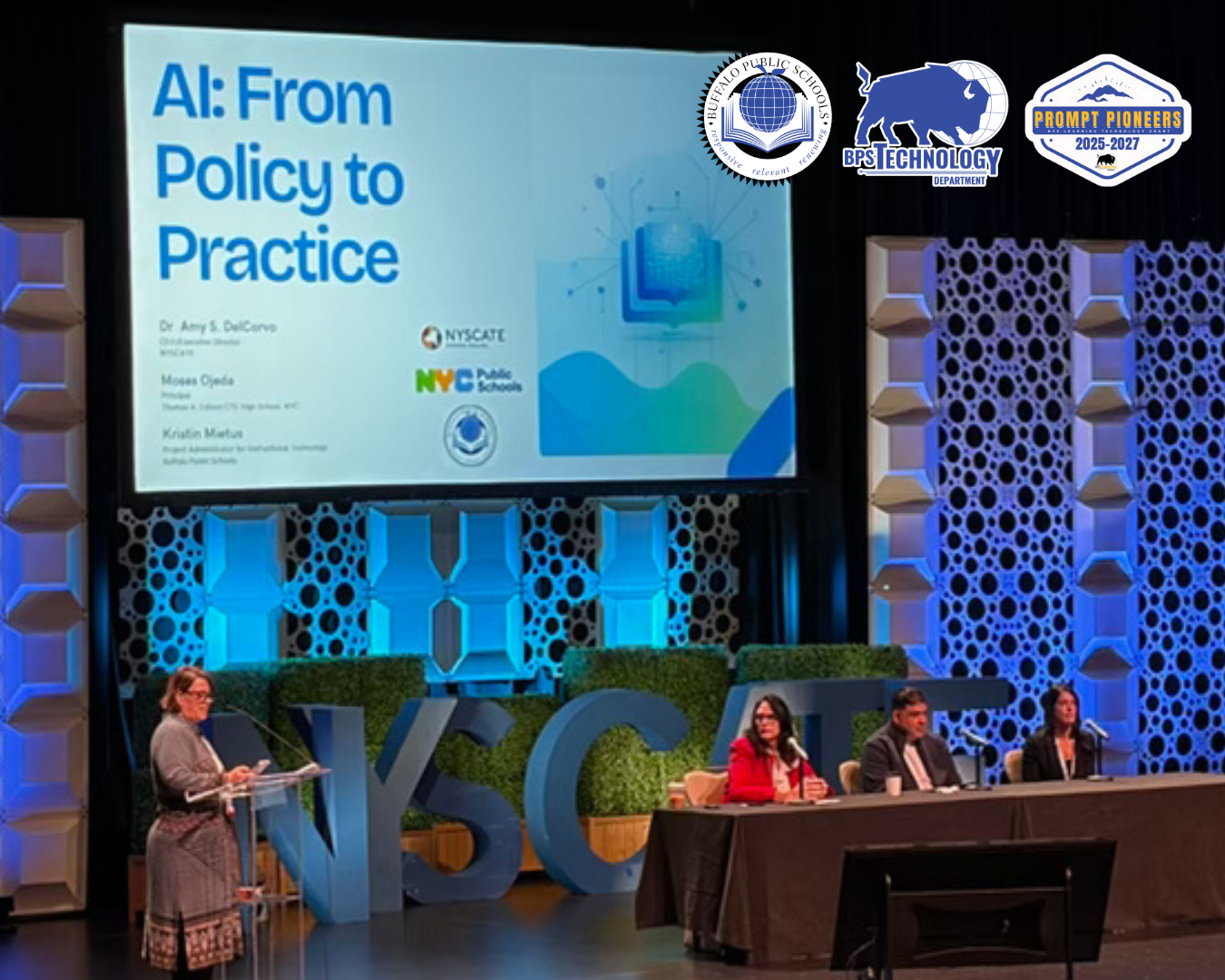
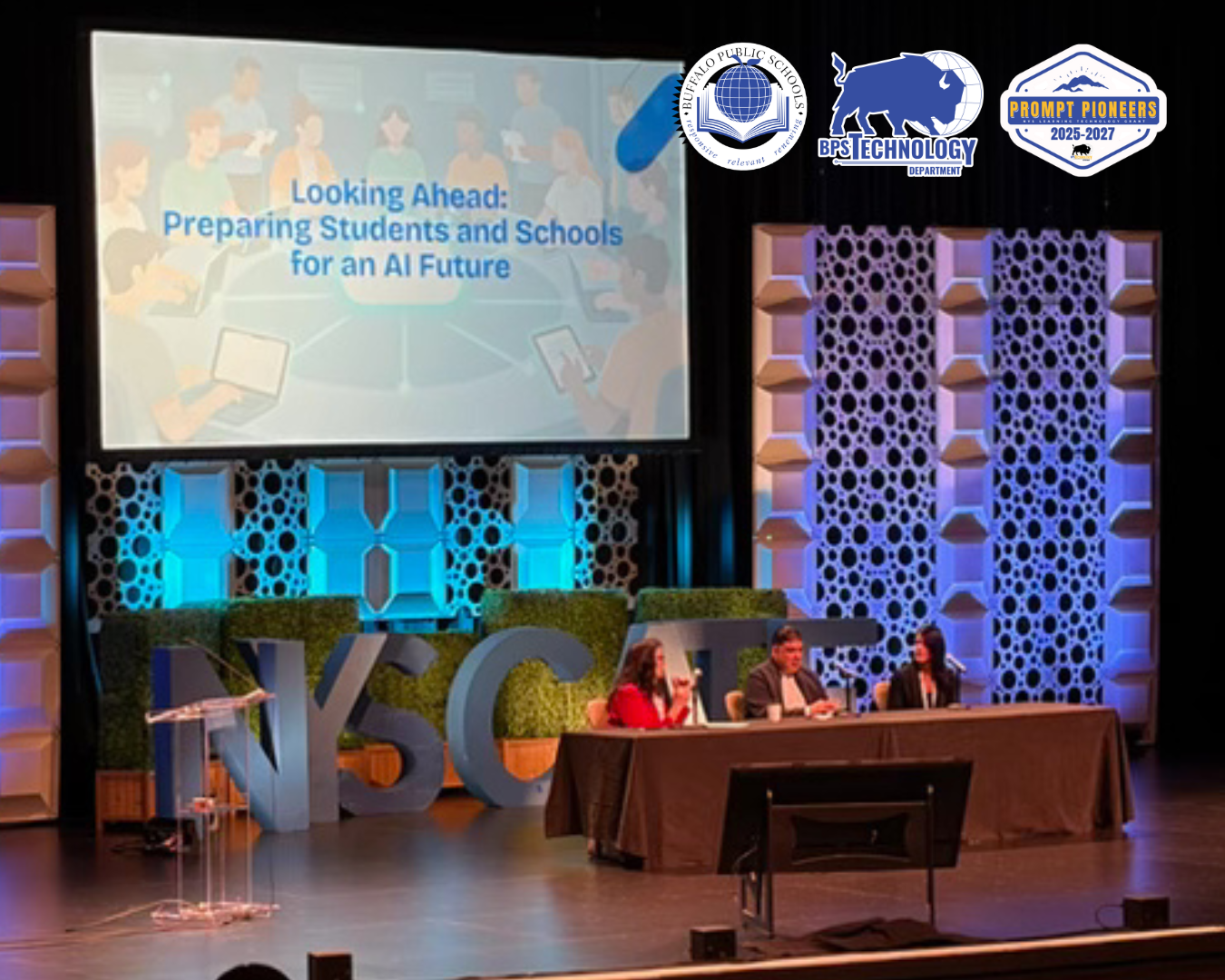
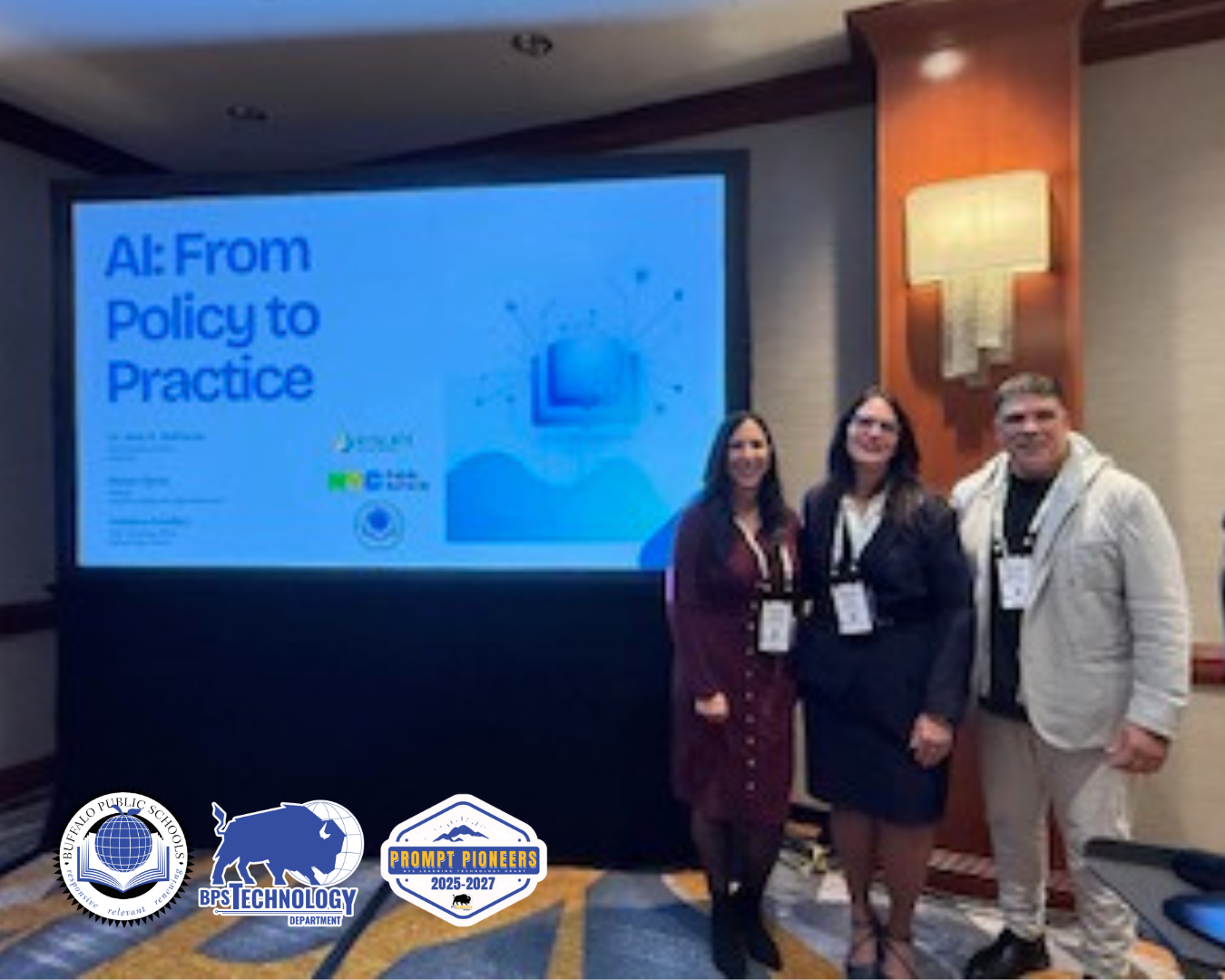
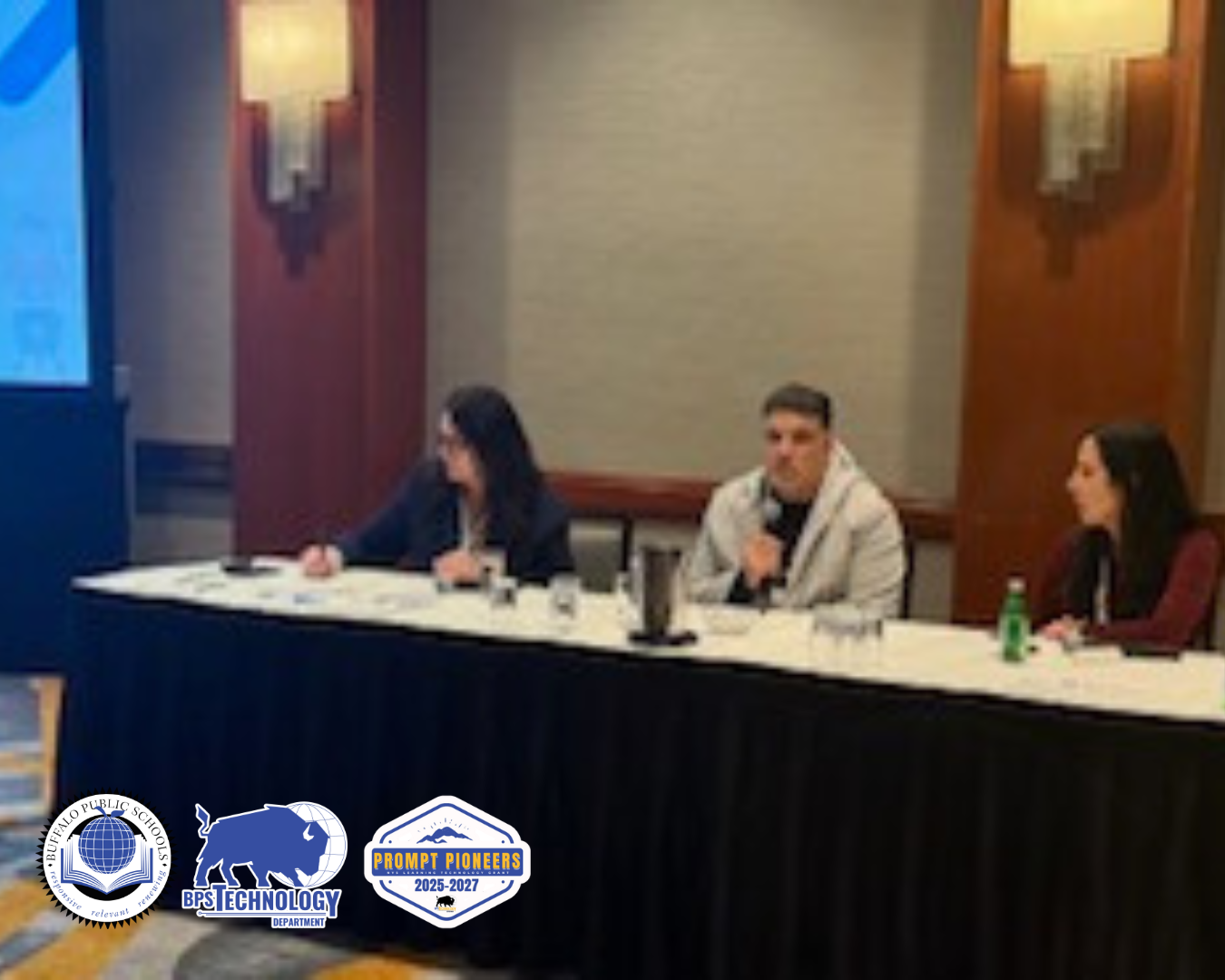
Timeline
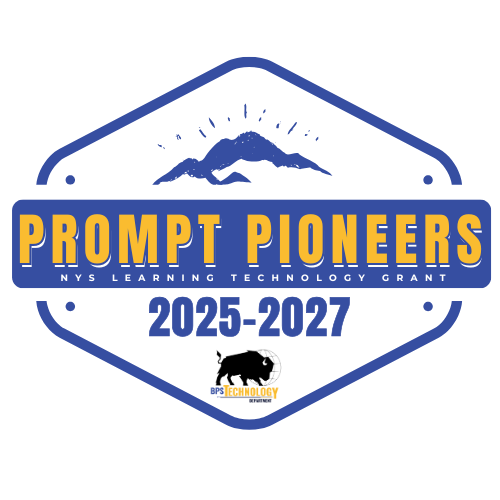
Magic School
Magic School Challenge
From September 18, 2025– October 6, 2025 educators will had the chance to compete in the Magic School Challenge. Participants explored innovative AI-powered tools designed to:
Save time on lesson planning
Boost student outcomes with curriculum-aligned supports
Enrich instruction with high-impact planning resources
Magic School tools available include:
Standards Unpacker
Common Misconceptions
DOK Questions
Assignment Scaffolder
Real World Connections
Buffalo Custom Lesson Plan Generator
Magic School Virtual Training Sessions
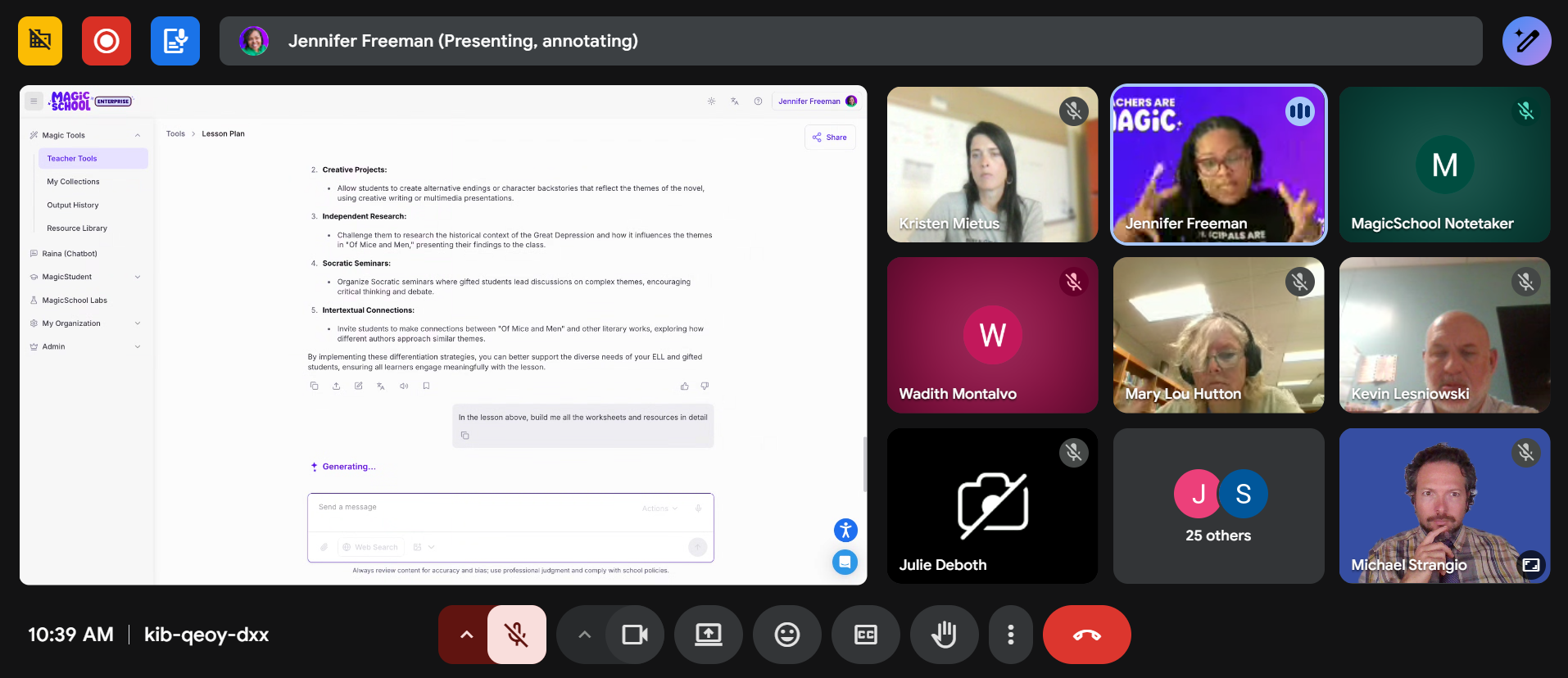
Magic School Educator Spotlight
Magic School Challenge | Winners
Top participants were recognized, with special prizes on October 14, 2025.
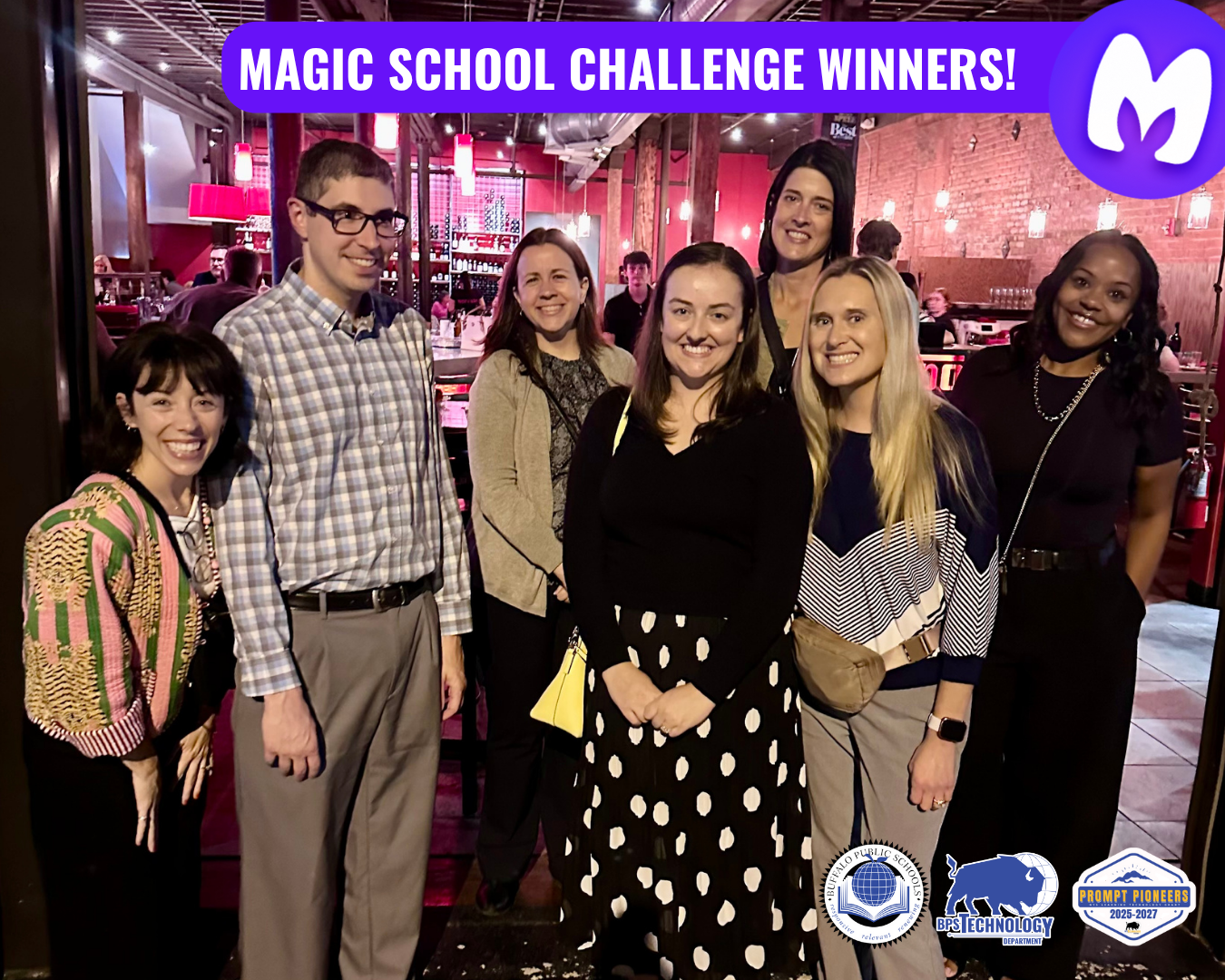
Magic School Challenge Winners of Dinner at Tappo Restaurant | Grant Gillan PS 198, Shana Powers PS 304, Hannah Blum PS 74 (Also Pictured Nikky Abernathy, Maria Muhlbauer, Kristen Mietus, Brianna Pride)

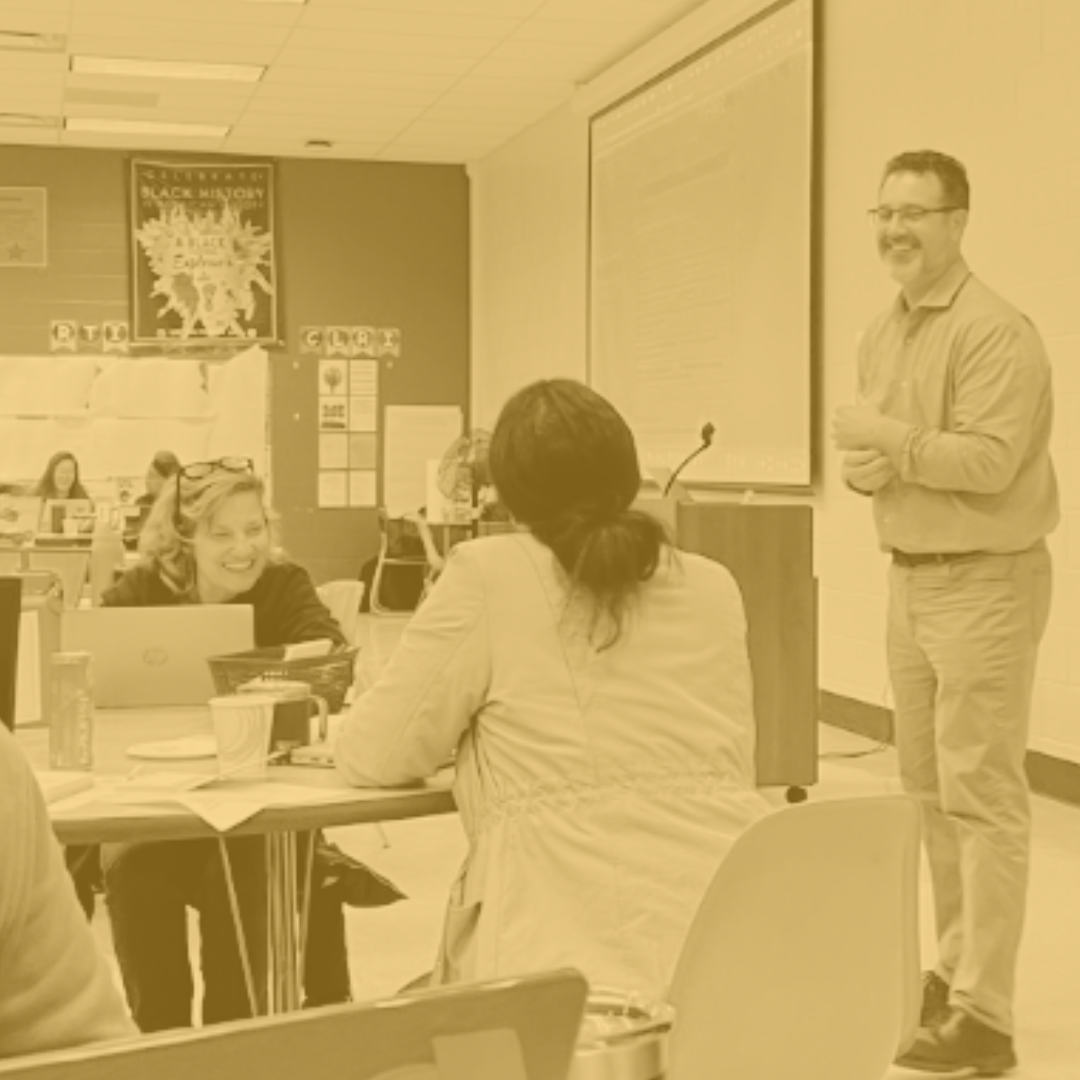

BPS Sanctioned Software with AI
Adobe
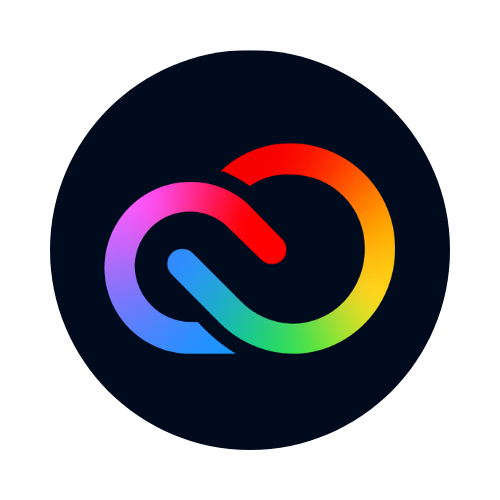
Canva
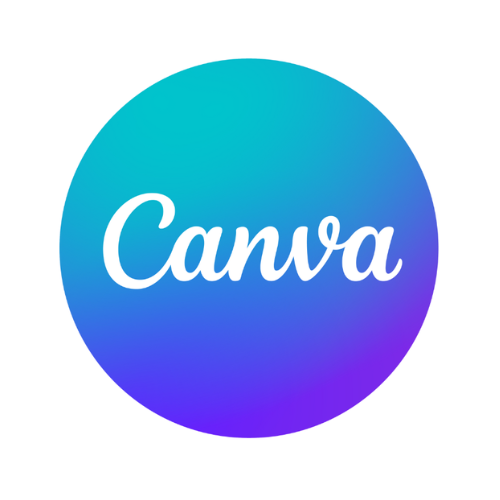
Copilot

Magic School

Nearpod

WeVideo

